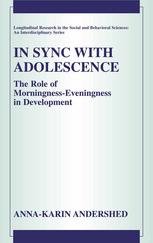

Most ebook files are in PDF format, so you can easily read them using various software such as Foxit Reader or directly on the Google Chrome browser.
Some ebook files are released by publishers in other formats such as .awz, .mobi, .epub, .fb2, etc. You may need to install specific software to read these formats on mobile/PC, such as Calibre.
Please read the tutorial at this link: https://ebookbell.com/faq
We offer FREE conversion to the popular formats you request; however, this may take some time. Therefore, right after payment, please email us, and we will try to provide the service as quickly as possible.
For some exceptional file formats or broken links (if any), please refrain from opening any disputes. Instead, email us first, and we will try to assist within a maximum of 6 hours.
EbookBell Team

4.8
14 reviewsAt the start of every school day, it’s not an unfamiliar sight to see younger children bounding toward school, bright-eyed and bushy-tailed, ready to seize the day. In contrast, adolescents sometimes seem to sleepwalk toward their middle and high schools, often bleary-eyed, cantankerous, and less than enthusiastic to get down to work. Why the difference?
Recent developmental research has demonstrated a relationship between sleep/wake patterns and different kinds of problem behaviors, including social adjustment problems, family coercion, and disaffection from school. Adolescents who prefer staying up later in the evening and arising late in the morning (i.e., eveningness) have often been considered at greater risk of suffering from such problem behaviors as delinquency and negative relationships with parents and teachers. Those who tend to go to bed and arise earlier (i.e., morningness) have long been associated with more positive outcomes. In the majority of previous research, however, these concepts have never been adequately tested.
In Sync with Adolescence: The Role of Morningness-Eveningness in Development examines the possible effects of adolescent preferences on problem behavior in different contexts. This volume presents a new way of looking at morningness-eveningness in relation to adolescent development in general and on problem behavior in particular. The study has produced results, the implications of which necessitate a reinterpretation of the current thinking about morningness-eveningness and adolescent adjustment.
This volume should be of particular interest to developmental psychologists and researchers who are interested in examining the role of biological factors in psychological processes as well as to sleep researchers who are interested in both the clinical and behavioral aspects. In addition, it is a valuable resource for clinical child and school psychologists, medical staff, teachers, and anyone who works with adolescents.